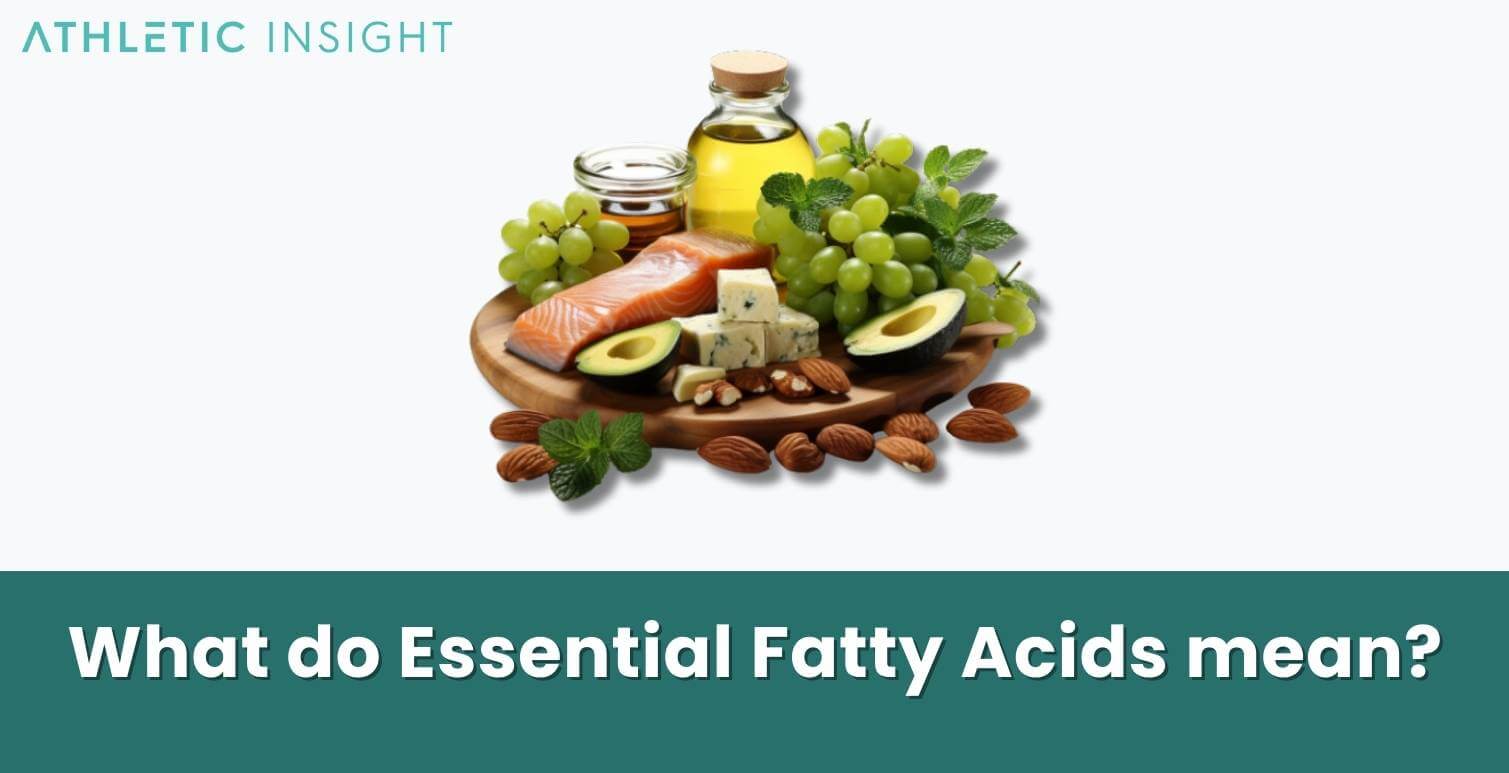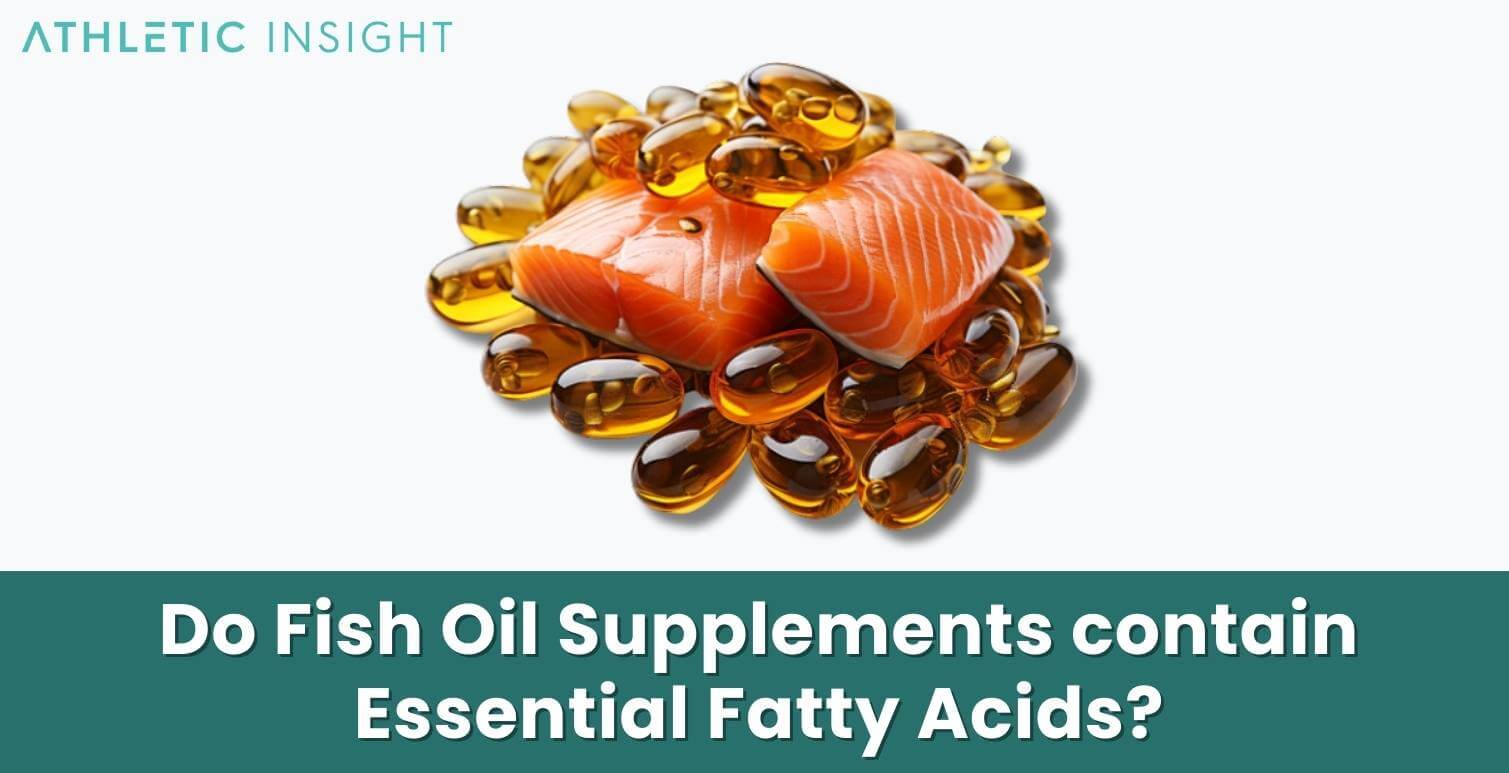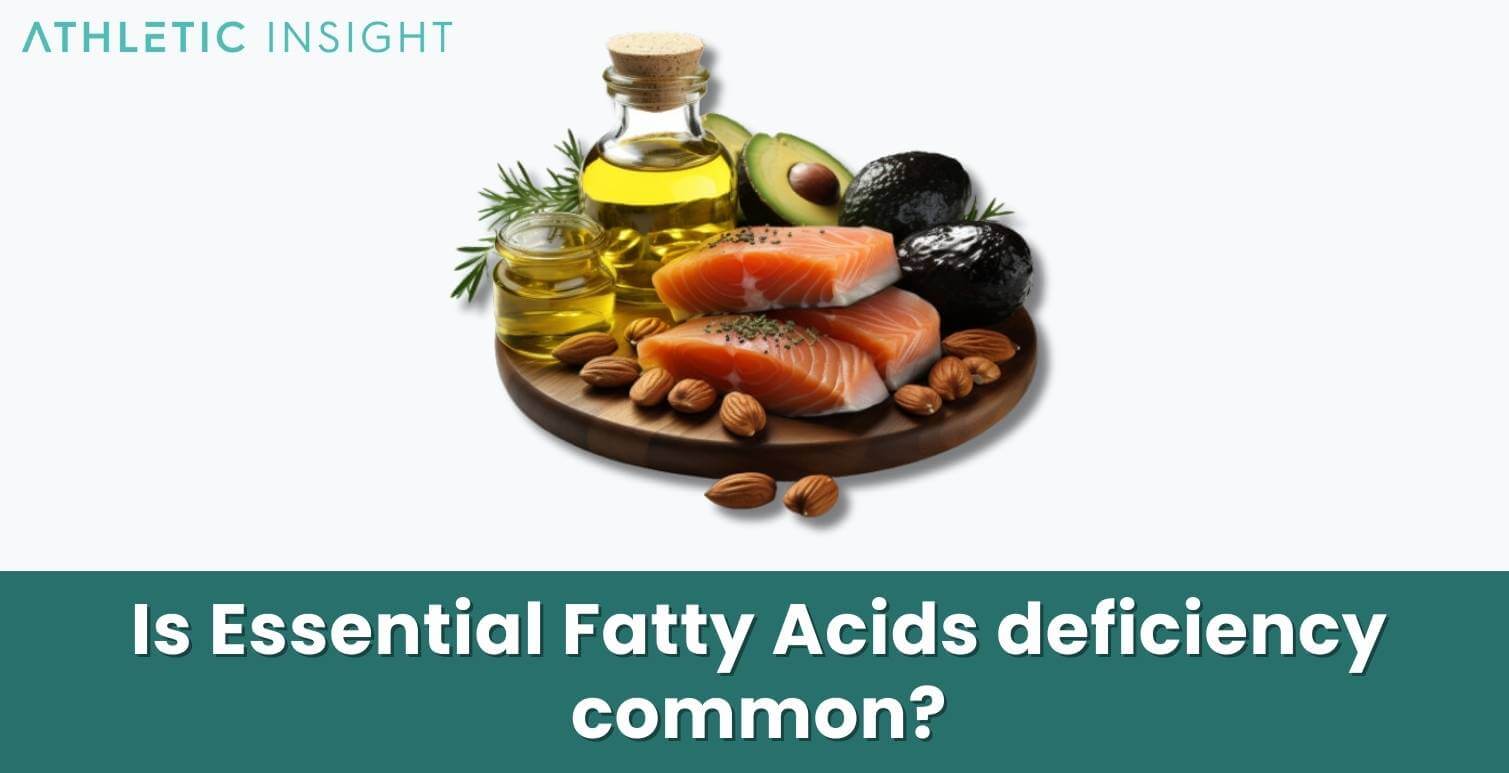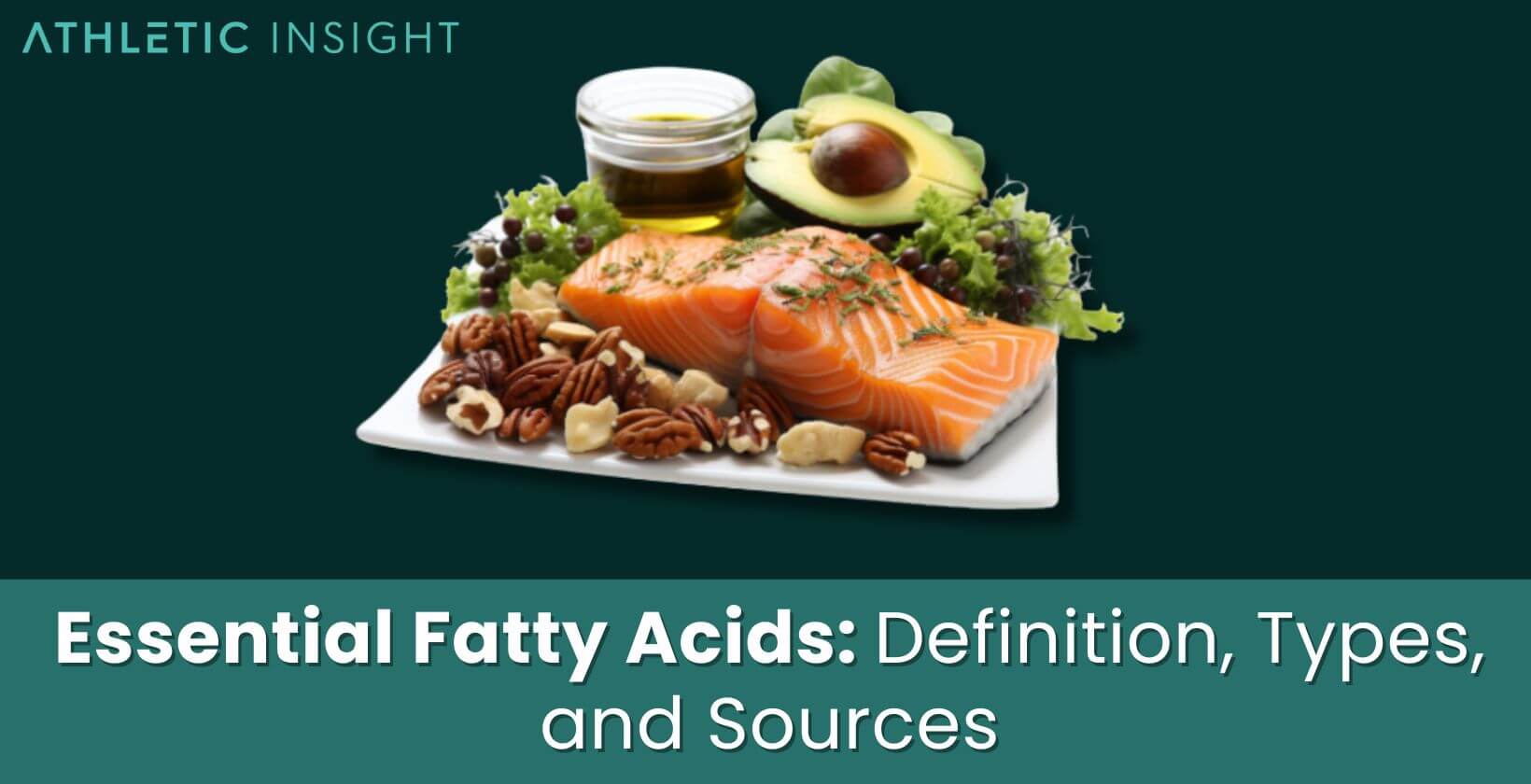In the complex world of nutrition, essential fatty acids (EFAs) claim a vital corner. Comprehending their role and value can contribute significantly to one’s wellbeing. Despite the terminology, these fatty acids are not “fatty” in the way you may typically understand the term. Rather, they are foundational building blocks, cornerstones for several bodily functions. Their critical roles span across maintaining brain health, heart function, and the body’s inflammatory response.
The “essential” in EFAs highlights your body’s inability to produce them, necessitating acquisition through diet. Two principal types, Omega-6 and Omega-3, form the EFA family. Many foods provide these EFAs, but a balanced intake is crucial for optimal health. Be sure to read this overview of essential fatty acids to unearth their definitions, functions, significance, types, and food sources.
What do Essential Fatty Acids mean?
Essential fatty acids, or EFAs, are specific types of polyunsaturated fats. They are deemed “essential” because your body cannot create them. As such, they must be obtained through your diet. There are two types of essential fatty acids: omega-6 (linoleic acid) and omega-3 (alpha-linolenic acid). These EFAs play a crucial role in many bodily functions, including cell growth and development, brain function, and inflammation regulation.

Studies indicate a critical role for EFAs in the structure and function of cell membranes, where they contribute to fluidity, flexibility, permeability, and other physical properties. They also act as precursors to eicosanoids, biologically active compounds that regulate various physiological processes. Essential fatty acids are, in essence, indispensable for your health and well-being.
What is the primary function of Essential Fatty Acids?
Essential fatty acids serve as pivotal contributors to the body’s overall health. They play a crucial role in several physiological processes. One of the primary functions of EFAs is to form structural components of all cell membranes in the body. They maintain membrane integrity, which is vital for the functioning of each cell.
Beyond maintaining cell structure, EFAs are precursors to biological compounds known as eicosanoids. These compounds influence a host of bodily functions, including inflammation, blood clotting, and blood pressure. EFAs also support brain health, boost immunity, and contribute to eye health. Their importance extends to the production of hormones and regulation of genes. Their functions are broad and multifaceted, underlining their essentiality in human nutrition.
Why are the Essential Fatty Acids important in Nutrition?
EFAs bear significant importance in nutrition due to their wide-ranging health benefits. They are fundamental to the structure and function of cells, influencing your overall health and wellness. From maintaining skin health to promoting heart health, their contributions are manifold and indispensable.
EFAs, especially Omega-3, play a crucial role in cognitive function and mental health. They support brain development in infants and children, and also maintain brain function in adults. They are integral to eye health, with deficiencies linked to vision problems. They also help regulate inflammation, a vital physiological response to injury and infection. So, the nutritional significance of EFAs is profound, emphasizing the need for their adequate intake in your diet.
What are the 2 Types of Essential Fatty Acids?
In the context of essential fatty acids, there are two types: Omega-6 and Omega-3. These EFAs, known scientifically as linoleic acid (Omega-6) and alpha-linolenic acid (Omega-3), are polyunsaturated fats that your body cannot synthesize. Consequently, they need to be obtained through diet or supplementation.
While both Omega-6 and Omega-3 are crucial for your health, an optimal balance between them is equally significant. Modern diets often tend to be heavy on Omega-6 while lacking in Omega-3, leading to an imbalance that could be detrimental to health. Striving for a balanced intake of these two types of EFAs can greatly enhance health outcomes.
- Omega-6 (ω-6)
- Omega-3 (ω-3)
1. Omega-6 (ω-6)
Omega-6 fatty acids, or ω-6, are a type of polyunsaturated fat predominantly found in vegetable oils, nuts, and seeds. They serve as key contributors to brain function and normal growth and development. In particular, they help stimulate skin and hair growth, regulate metabolism, and maintain bone health.
The primary omega-6 fatty acid is linoleic acid, which the body converts into another omega-6 fat, arachidonic acid. While both are crucial, an excess of arachidonic acid could lead to inflammation if not balanced with omega-3 intake. Subtypes of Omega-6 include gamma-linolenic acid (GLA) and dihomo-gamma-linolenic acid (DGLA), both known for their anti-inflammatory properties.
2. Omega-3 (ω-3)
The Omega-3 fatty acids, or ω-3, are another type of polyunsaturated fats vital for human health. They play a crucial role in brain function, as well as normal growth and development. Their anti-inflammatory properties make them essential in controlling and reducing systemic inflammation in the body.
Alpha-linolenic acid (ALA), docosahexaenoic acid (DHA), and eicosapentaenoic acid (EPA) are the three main types of omega-3 fatty acids. DHA and EPA, found primarily in fish oil, have the most health benefits, whereas ALA, found in plant oils, is a less potent form of omega-3. The body can convert a small amount of ALA into EPA and DHA, making it an important nutrient nonetheless.
How does Essential Fatty Acid help in Weight Loss?
In the world of weight management, essential fatty acids occupy a pivotal role. Studies suggest that omega-3 fatty acids, in particular, may enhance the body’s ability to burn fat. They do so by influencing enzymes that directly affect fat storage and metabolism. Omega-3s also play a role in reducing appetite, leading to a reduced caloric intake.
Omega-3 fatty acids may also influence the composition of the gut microbiome, which could impact weight regulation. A balanced gut microbiome has been linked with a healthier weight. Incorporating these EFAs into a comprehensive diet plan can, therefore, be beneficial for weight management, along with other lifestyle modifications.
What type of diet uses Essential Fatty Acids?
Essential fatty acids find a place in various dietary patterns, given their profound health benefits. The Mediterranean diet, recognized for its heart-healthy attributes, is rich in omega-3 fatty acids from sources like fish and olive oil. The DASH diet (Dietary Approaches to Stop Hypertension) and MIND diet (Mediterranean-DASH Diet Intervention for Neurodegenerative Delay) also promote EFA-rich foods.
Vegetarian and vegan diets can also provide essential fatty acids, albeit with a focus on plant-based sources. It’s noteworthy that EFA balance is key in these diets, as they can be heavy on omega-6 and lighter on omega-3. Hence, a mindful selection of EFA sources is crucial regardless of dietary type or preference.
How do Vegans get Essential Fatty Acids?
Vegans can obtain essential fatty acids from a variety of plant-based sources. Alpha-linolenic acid (ALA), a form of omega-3, can be found in flaxseeds, chia seeds, hemp seeds, and walnuts. Soybeans and their derivatives also contain both omega-3 and omega-6 fatty acids.
While ALA is an important nutrient, it’s not as potent as the other types of omega-3, EPA and DHA, commonly found in fish. To ensure optimal omega-3 status, vegans may consider algae-based supplements, which can provide DHA and EPA. It’s also crucial for vegans to ensure a balanced intake of omega-6 and omega-3 to maximize the benefits of these EFAs.
What are the food sources of Essential Fatty Acids?
Essential fatty acids can be obtained from a plethora of food sources. Both Omega-6 and Omega-3 EFAs have unique sources that contribute to their dietary intake. Omega-6 is predominantly found in vegetable oils, nuts, and seeds, while Omega-3 is typically derived from fatty fish and certain plant-based foods.
Balancing the intake of these EFAs from various food sources is crucial. It’s important to note that while many foods contain both Omega-3 and Omega-6, the proportion can vary. Here are some of the significant sources of EFAs.
- Flaxseeds and Flaxseed Oil
- Chia Seeds
- Hemp Seeds
- Walnuts
- Soybeans and Soybean Oil
- Fatty Fish
1. Flaxseeds and Flaxseed Oil
Flaxseeds and flaxseed oil are renowned sources of Alpha-Linolenic Acid (ALA), a type of Omega-3 fatty acid. These nutrient-dense seeds contribute to the reduction of inflammation and support heart health.
The recommended intake of flaxseeds is 1-2 tablespoons per day. They can be ground and added to smoothies, cereals, and baked goods. Flaxseed oil can also be used in salad dressings. However, it’s not suitable for cooking due to its low smoke point.
2. Chia Seeds
Chia seeds are another plant-based source of Omega-3, specifically ALA. Besides being EFA-rich, they are also packed with fiber, protein, and other beneficial nutrients. Chia seeds contribute to heart and bone health, and they can absorb liquid to form a gel, making them a unique addition to many recipes.
The recommended intake of chia seeds is about 1-2 tablespoons per day. They can be soaked in liquid to form a pudding, or sprinkled raw onto salads, yogurt, and cereals.
3. Hemp Seeds
Hemp seeds, also known as hemp hearts, are a rich source of Gamma-Linolenic Acid (GLA), a type of Omega-6 fatty acid. They also contain a modest amount of Omega-3. These seeds are known for their potential to alleviate skin disorders and PMS symptoms, and they contribute to heart health as well.
One to two tablespoons is the recommended daily intake of hemp seeds. These nutty seeds can be sprinkled onto salads, cereals, and yogurt, or blended into smoothies. They also make a nutritious addition to baked goods and stir-fry dishes.
4. Walnuts
Walnuts are one of the few nuts that are an excellent source of ALA, an Omega-3 fatty acid. They are well-regarded for their contribution to heart health, brain health, and their potential role in cancer prevention.
The suggested daily intake is a small handful of walnuts, around 1 ounce. They can be consumed raw as a snack or can be incorporated into a variety of dishes, from salads and pasta to desserts and baked goods.
5. Soybeans and Soybean Oil
Soybeans and soybean oil are unique as they contain both Omega-6 and Omega-3 fatty acids. They are beneficial for heart health and can be particularly advantageous for those following plant-based diets.
A cup of cooked soybeans or 1-2 tablespoons of soybean oil per day is the suggested intake. Soybeans can be eaten roasted as a snack or incorporated into various dishes. Soybean oil can be used for cooking or in salad dressings.
6. Fatty Fish
Fatty fish are one of the best sources of DHA and EPA, the potent forms of Omega-3. Fish such as salmon, mackerel, tuna, and sardines are especially high in these essential fatty acids. Regular intake of fatty fish can contribute to heart health, brain health, and inflammation reduction.
Two servings of fatty fish per week, each serving being about 3.5 ounces cooked, is the general recommendation. They can be grilled, baked, or broiled and served as a main protein source in meals.
Do Fish Oil Supplements contain Essential Fatty Acids?
Yes, fish oil supplements are a concentrated source of Omega-3 fatty acids, specifically EPA and DHA. They are often used by individuals who may not consume enough of these EFAs through diet alone. They can support heart health, cognitive function, and inflammation reduction.

It’s worth noting that while supplements can help achieve adequate EFA intake, they should not replace a balanced diet. Also, the quality and purity of fish oil supplements can vary, so it’s advisable to select products that have been independently tested for contaminants.
Are avocados high in omega-3?
No, avocados contain Omega-3 fatty acids, but they are not considered a high source. The primary type of fat in avocados is monounsaturated fat, which has its own heart-healthy benefits. Avocados do, however, contain a small amount of the Omega-3 fatty acid ALA.
Despite not being rich in Omega-3, avocados are still a valuable part of a healthy diet. Their high fiber content, along with a variety of vitamins and minerals, makes them a nutritious addition to meals. Adding avocados to salads can also help improve the absorption of fat-soluble vitamins from other vegetables.
Are eggs high in omega-3?
The Omega-3 content of eggs largely depends on the hens’ diet. Regular eggs contain small amounts of Omega-3. However, eggs labeled as “Omega-3 enriched” or “pasture-raised” come from hens that have been fed flaxseed or fish oil, or have grazed on pastures, respectively. These eggs contain significantly higher levels of Omega-3.
These enriched eggs can be a valuable source of Omega-3 for individuals who don’t consume fatty fish. But it’s important to remember that the type of Omega-3 found in eggs is primarily ALA, which isn’t as potent as EPA and DHA, the types found in fatty fish. Nonetheless, eggs are a nutritious food choice, providing high-quality protein and a variety of vitamins and minerals.
What are the Benefits of Essential Fatty Acids?
Essential fatty acids play crucial roles in the human body and contribute to overall health in several ways. Omega-6 and Omega-3, the two types of EFAs, are both integral for proper body functioning, despite their different roles.
Among the chief benefits are improved heart health, as EFAs have been shown to reduce levels of LDL cholesterol and increase levels of HDL cholesterol. EFAs also aid in the reduction of inflammation, which is vital in the prevention and management of numerous diseases, including arthritis and asthma. They support brain health too, with Omega-3 being especially beneficial for cognitive function and mental health.
What are the Risks of Essential Fatty Acids?
While essential fatty acids are necessary for health, an imbalanced intake can lead to health risks. Consuming too much Omega-6 relative to Omega-3 can result in an increased inflammation, contributing to various health issues like heart disease, cancer, and autoimmune diseases. Excessive Omega-6 can also interfere with the body’s ability to use Omega-3.
On the other hand, consuming excessive amounts of Omega-3, usually through supplements, can lead to bleeding complications or affect immune function. It’s essential to balance the intake of both Omega-6 and Omega-3 for optimal health benefits.
Is Essential Fatty Acids deficiency common?
While deficiencies in essential fatty acids are not common in general, certain populations may be at risk. People following a low-fat diet, those with specific digestive disorders like Crohn’s disease, and individuals who rely heavily on processed foods may not get enough EFAs.

Signs of EFA deficiency can include dry and itchy skin, brittle nails, dry eyes, and joint discomfort. If a deficiency is suspected, it’s crucial to seek advice from a healthcare professional and consider dietary changes or supplementation.
Can a person have too many Essential Fatty Acids?
Yes, it is possible for a person to consume an excessive amount of essential fatty acids. While EFAs are critical for health, too much, particularly from supplements, can lead to adverse effects. Overconsumption of Omega-3 can result in thinning blood and increased bleeding risk. Excessive Omega-6 intake, typically through over-reliance on processed foods, can result in elevated inflammation levels.
Striking a balance in EFA intake is crucial, as both Omega-6 and Omega-3 fatty acids play distinct and vital roles in body functions. A varied diet, with a mix of different food sources of EFAs, can help achieve this balance and ensure optimal health benefits.
What is the difference between Essential Fatty Acids and Fats?
Fats and essential fatty acids, while both lipids, have different roles and characteristics. Fats, specifically dietary fats, come in several types, including saturated, unsaturated, and trans fats. These fats serve as a major energy source for the body, aid in nutrient absorption, and help protect vital organs.
On the other hand, essential fatty acids, a subset of unsaturated fats, cannot be produced by the human body and must be obtained from the diet. They are essential for numerous physiological processes, including inflammation regulation, brain function, and cell membrane structure maintenance.
What is the difference between Essential Fatty Acids and Fatty Acids?
Fatty acids are a broad category of molecules made of a chain of carbon atoms linked to hydrogen atoms. They can be categorized into saturated, monounsaturated, and polyunsaturated fatty acids. Fatty acids are vital for energy storage, cellular function, and inflammation regulation.
Essential fatty acids, on the other hand, are a specific group of polyunsaturated fatty acids that the body cannot synthesize. These include Omega-3 and Omega-6 fatty acids. They play unique roles in the body, including cell structure, brain development, and immune function. As the body cannot produce them, they must be obtained through the diet, hence the term ‘essential’.



